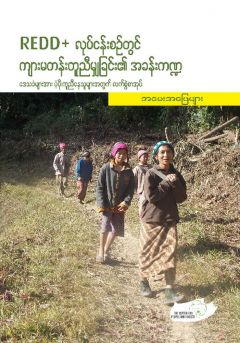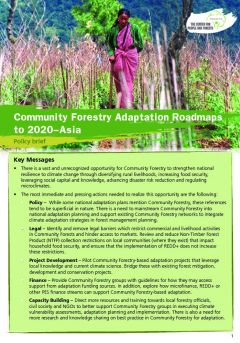Location
RECOFTC
RECOFTC is derived from an abbreviated form of the organization's legal name, Regional Community Forestry Training Center for Asia and the Pacific. Formerly the organization was known as RECOFTC – The Center for People and Forests.
RECOFTC – The Center for People and Forests is an international not-for-profit organization that focuses on capacity building for community forestry in the Asia Pacific region. It advocates for the increased involvement of local communities living in and around forests - some 450 million people in Asia-Pacific - in the equitable and ecologically sustainable management of forest landscapes.
The Regional Community Forestry Training Center for Asia and the Pacific (RECOFTC) opened in Bangkok, Thailand, in March 1987 with support from the United Nations Food and Agriculture Organization, the Government of Switzerland (through the Asian Development Bank), and Thailand's Kasetsart University.
Community forestry is widely acknowledged as a powerful solution for many of the challenges facing local people and the wider society, especially in improving rural livelihoods, enhancing community governance and empowerment, transforming forest-related conflict, protecting and enhancing the environment, and helping to fight climate change. As a capacity-building organisation, RECOFTC improves the ability of people and organisations to conduct community forestry effectively and sustainably.
RECOFTC works toward its mission through four thematic areas:
- expanding community forestry
- people, forests and climate change
- transforming forest conflict
- securing local livelihoods.
Members:
Resources
Displaying 211 - 215 of 485Gender in REDD+: Q&A handbook - Myanmar
The main objective of the handbook is to support local trainers and facilitators who are already familiar with climate change and REDD+. It provides them with useful information on gender considerations for climate change and REDD+ related training and capacity development programs.
Community Forestry Adaptation Roadmap to 2020 for Vietnam
Community forestry supports local level climate change adaptation by enhancing resilience in multiple ways: supporting livelihoods and income, increasing food security, leveraging social capital and knowledge, reducing disaster risks and regulating microclimates. However, adaptation planning has, by and large, not included community forestry as a viable climate change adaptation tool.
Community Forestry Adaptation Roadmap to 2020 for Thailand
Community forestry supports local level climate change adaptation by enhancing resilience in multiple ways: supporting livelihoods and income, increasing food security, leveraging social capital and knowledge, reducing disaster risks and regulating microclimates. However, adaptation planning has, by and large, not included community forestry as a viable climate change adaptation tool.
Community Forestry Adaptation Roadmaps to 2020 for Asia
There is a vast and unrecognized opportunity for community forestry to strengthen national resilience to climate change through diversifying rural livelihoods, increasing food security, leveraging social capital and knowledge, advancing disaster risk reduction and regulating microclimates. However maximizing the role for community forestry in climate change is an area where clear guidance and recommendations are lacking.
Community Forestry Adaptation Roadmap to 2020 for Cambodia
Community forestry supports local level climate change adaptation by enhancing resilience in multiple ways: supporting livelihoods and income, increasing food security, leveraging social capital and knowledge, reducing disaster risks and regulating microclimates. However, adaptation planning has, by and large, not included community forestry as a viable climate change adaptation tool.






